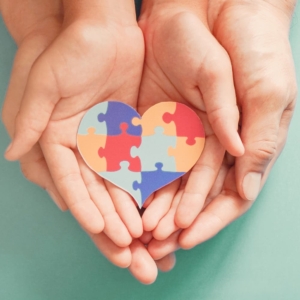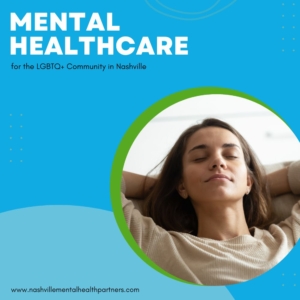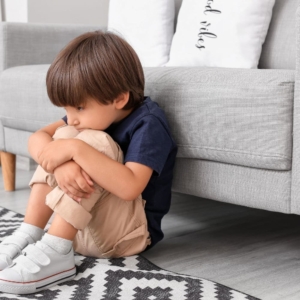With over 183,000 residents, Chattanooga is the 4th largest metropolitan area in Tennessee. The Appalachian Mountains serve as the city’s backdrop, and the Tennessee River meanders through downtown. It’s no wonder why so many people flock to the area. For all of its beauty, though, there is evidence to suggest that Chattanooga may lack sufficient access to mental health care. This is confirmed by a report published by the Chattanooga-Hamilton County Health Department, which reveals that 13% of people surveyed experience frequent mental distress.
Finding mental health care in Chattanooga is the best solution to these issues, but many people have trouble connecting with a provider who can help. Find out how you can get psychiatric care in Chattanooga and overcome struggles with depression, anxiety, and other mental health problems.
What Makes Chattanooga Unique?
Chattanooga’s natural scenery is just part of its beauty. The city is also known for its friendly atmosphere and small-town closeness — both of which are cultivated by the area’s residents. Indeed, the people of Chattanooga — including the following three groups — are what truly make it beautiful.
Students Need Mental Health Care in Chattanooga
Chattanooga is sometimes called a college town because it does include several institutes of higher learning. There are seven colleges within city limits, which means that students comprise an important portion of the population. Research indicates, though, that at least 50% of college students struggle with a mental health issue. Treatment for these issues isn’t always readily available on campus, which may prompt some students to seek out mental health care in Chattanooga from another provider.
Family Mental Health Care in Chattanooga
Statistics show that families also comprise a major part of the Chattanooga population. Indeed, families represent nearly 52% of households in the area, and many of these families include young children and adolescents. Parenthood can be a source of stress that exacerbates mental ailments, so seeking care is important for parents who may be struggling. It’s not uncommon for mental illnesses such as depression to become evident in adolescence, too. Parents who suspect that their child may be dealing with depression, anxiety, or any other mental issue should ensure that they receive mental health care in Chattanooga.
Mental Health Care for LGBTQ+ Individuals in Chattanooga
The LGBTQ+ community is yet another important part of Chattanooga’s demographics. One article reports that there are more than 11,000 LGBTQ+ people in Hamilton County. Unfortunately, though, it’s not always easy for members of this group to find compassionate and effective mental health care in Chattanooga. If you’ve ever had an unpleasant experience with a provider or felt subject to judgment, you know how vital it is to connect with a psychiatric provider who is welcoming and supportive.
Empathetic Care for LGBTQ+ Individuals in Chattanooga
Finding an affirming mental health care provider in Chattanooga might be difficult if you’re restricting your search to local, in-person providers. Luckily, there are psychiatric providers who offer telehealth appointments, and this can make it easier to access the care you need.
Gender-Affirming Mental Health Care in Chattanooga
Studies show that transgender people are disproportionately represented in mental illness statistics. This is unsurprising, given the fact that the American Psychiatric Association considered a trans identity to be evidence of mental illness until 2012. It’s become clear, though, that many people in the trans community do indeed experience mental struggles such as depression and anxiety at higher rates than the rest of the population.
This may be because of societal pressures, social isolation, or simply because of a genetic predisposition. Regardless of the cause, it’s vital for any gender nonconforming person to find the right mental health care in Chattanooga. Gender-affirming mental health care can help you overcome mental health struggles in a safe, supportive, and non-judgmental environment.
Treatment Options for LGBTQ+ Clients
Other members of the LGBTQ+ population in Chattanooga — including gay, lesbian, and bisexual people — may also struggle to access the care they need. According to the American Psychiatric Association, this group is more than twice as likely to experience mental illness than people who identify as heterosexual. This illustrates the need for compassionate mental health care in Chattanooga that’s accessible to everybody.
Collaborative Care With a Psychiatric Provider in Chattanooga
Therapy is an effective treatment approach for nearly any mental illness. In addition to granting patients a place to explore their feelings, it can provide useful tools for mitigating the symptoms of mental struggles. Some LGBTQ+ people haven’t found this to be true, though, as traditional models of psychotherapy were designed with heterosexual, gender-conforming patients in mind.
A trend has emerged in recent years to shift this paradigm and develop a strengths-based approach to therapy that addresses LGBTQ+ issues. If you are working with a therapist, but you’ve found that talk therapy isn’t enough to help you address your problems, incorporating psychiatric care in Chattanooga may improve your results.
Treatment for Depression in Chattanooga
It’s estimated that depression affects over 21 million adults in the U.S. This figure is certainly concerning, but statistics for the state of Tennessee are even worse. According to the National Center for Health Statistics, more than 41% of Tennesseans — including Chattanoogans — report symptoms of depression or anxiety.
Treatment for Suicidal Ideation
The aforementioned research published by the Chattanooga-Hamilton County Health Department provides some insight into residents’ struggles with depression and suicidality. The study reveals that there are over 40 deaths by suicide in Hamilton County annually, indicating a dire need for better intervention and prevention services. If you are struggling with suicidal ideation and feel that you may be a danger to yourself, it is vital to take one of the following actions:
- Call the National Suicide Prevention Lifeline at (800) 273-8255
- Text the Crisis Text Line by texting HOME to 741741
- Chat with the National Suicide Prevention Lifeline’s Lifeline Chat online
- Seek treatment at your local Emergency Room facility
- Reach out to a loved one who you trust
There is help available to find relief from suicidal ideation. Mental health care in Chattanooga can offer solutions.
Antidepressants in Chattanooga
Antidepressants are one of the most effective treatment options for depression. Evidence suggests that their efficacy is directly proportional to the severity of a person’s depression, so those who experience severe symptoms may benefit the most. The most commonly prescribed type of antidepressant is selective serotonin reuptake inhibitors (SSRIs), but there are several other types of antidepressants, too, including the following:
- Serotonin-noradrenaline reuptake inhibitors (SNRIs)
- Tricyclic antidepressants (TCAs)
- Serotonin antagonists and reuptake inhibitors (SARIs)
- Monoamine oxidase inhibitors (MAOIs)
Finding the right antidepressant can be a process of trial and error, but the right psychiatric provider in Chattanooga will partner with you to make the process as easy as possible.
Treatment for Anxiety in Chattanooga
Anxiety is even more common than depression in the U.S., and it affects many people in Chattanooga. If you are dealing with this issue, seeking out mental health care in Chattanooga can help.
Causes of Anxiety in Chattanooga
Many people who struggle with anxiety wonder what might be causing it. Symptoms such as difficulty breathing, heart palpitations, and racing thoughts may all have different physiological triggers. An excess of hormones such as adrenaline or cortisol, for example, can cause anxiety symptoms to appear. It’s clear, though, that a person’s life experiences can also be at the root of the issue, as is the case with post-traumatic stress disorder.
Anxiety Medication in Chattanooga
Regardless of the cause of your anxiety in Chattanooga, finding treatment is an important step towards relief. There are several medications that can help you achieve this goal, including SSRIs and SNRIs. Some of the most commonly prescribed anti-anxiety medications include the following:
- Celexa (citalopram)
- Lexapro (escitalopram)
- Zoloft (sertraline)
- Effexor XR (venlafaxine)
- Pristiq (desvenlafaxine)
- Cymbalta (duloxetine)
SSRIs and SNRIs work by regulating the brain’s absorption of serotonin and norepinephrine, respectively. Serotonin and norepinephrine have both been found to play a role in anxiety, so medications that impact these neurotransmitters can provide effective relief from symptoms.
Coping Mechanisms for Anxiety in Chattanooga
People dealing with anxiety in Chattanooga can also benefit from certain coping methods such as breathing exercises and practicing mindfulness. Research shows that these activities can mitigate the “fight or flight” feeling that often accompanies episodes of anxiety. These strategies are most effective when they are applied in conjunction with other treatment methods, though, including therapy or medication. Working with a psychiatric provider in Chattanooga is a great way to formulate a comprehensive treatment plan.
Chattanoogans Deserve Affordable and Accessible Mental Health Care
Chattanooga is a vibrant city full of enchanting scenery and friendly residents. If you’re one of these residents and you’re looking for a better way to access mental health care, Rose Behavioral Health offers solutions. We serve clients throughout the state of Tennessee with affordable psychiatric services and telehealth appointments. In addition to welcoming LGBTQ+ clients, we focus on serving women, veterans, people of color, and anybody else struggling with mental health issues. If you want to take control of your well-being, contact us to schedule your appointment.







